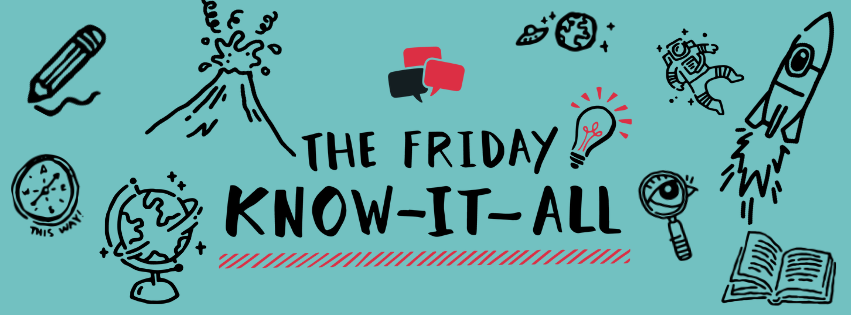In the course of writing trivia, we come across interesting information that’s too esoteric to become a question. Enter: the Friday Know-It-All. Here we go!
Edythe Eyde started the first lesbian zine in her downtime at work. It seems that she wasn’t aware she could become a felon if someone decided to enforce the Comstock Act on her until a friend warned her several issues into her run. She wrote under the pen name Lisa Ben, an anagram of “lesbian.” She also performed gay parody songs she wrote herself at private parties. It seems like she was a real delight! She passed away in 2015 at the age of 94.
That’s the beginning of lesbian zines, but not the end of queer zines, which continue through the present. Zines are generally self-published (like, on a photocopier) booklets, most frequently used to distribute ideas that don’t get the attention of traditional publishers. You can find archives of queerzines from the past and present. The Twin Cities have our own zine fest; your city probably does too.
On the topic of art and preservation, I was super interested to learn about this study from a few years ago showing the history of air pollution through the color of sunsets in paintings from hundreds of years ago. Air polluted with volcanic ash produces redder sunsets, even if the ash isn’t otherwise visible to the naked eye. Besides being very cool, this helps create models of climate fluctuations from times before data were collected. Art!
I wrote a round about Asian Americans and Pacific Islanders who did nonfiction writing, and what you might have learned if you read it. This was in part borne out of my search, still unfulfilled, to find the original writing for which the first Asian American won a Pulitzer. Gobind Behari Lal was part of a group that “the [Pulitzer for Reporting] for their coverage of science at the tercentenary of Harvard University,” according to Wikipedia, and also every other source I could find. What did they write about? What was happening at Harvard’s tercentenary that deserved this level of coverage? Why isn’t the specific article or series of articles findable anywhere? If you have academic access to the 1937 Scripps-Howard archives and want to send me whatever it is he wrote about Harvard, please do. I really want to know!
In my quest to find out, I read about half of this book-length interview conducted with Lal by Suzanne Riess. It’s a fascinating look at the first person to have “Science Reporter” in his byline, starting with his childhood in India, his relationship to Indian and American politics, his experience as often the only immigrant and only person of color in a lot of rooms, and his interviews with everyone from Albert Einstein to Mohandas Gandhi. Lal comes across as thoughtful, engaging, and a really fun hang, especially for a guy who was 92 at the time. If you’re at all interested in any of those topics, I really recommend perusing it.
In 2007, reporter Billy Baker accidentally discovered that his wife Lori’s Tetris skills, which he thought were merely pretty good, were actually world class. I recommend reading this article about her subsequent attempt to break the world record, but it really got me thinking about the secret skills that people have in their lives. Writing trivia is often a search for superlatives — firsts, mosts, and so on — but all we can report is what’s documented. Maybe the biggest zucchini ever grown never made it to the state fair. Maybe the first four-minute mile was run completely out of sight. Getting more subjective, maybe the drawings in your sister’s sketchbook she doesn’t show anyone would make you cry with how good they are. Maybe your neighbor invented a new kind of rose and hasn’t told anyone. Possibility abounds!






